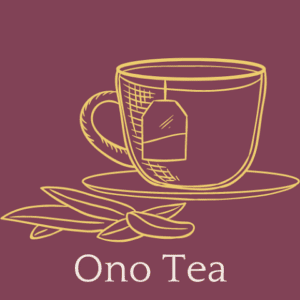In recent years, a quiet revolution has been brewing in the world of wellness—one steeped in ancient wisdom and served in a soothing cup. Adaptogenic herbal teas have surged in popularity, promising not just a moment of calm but a powerful antidote to the relentless stress of modern life. From ashwagandha to rhodiola, these potent plants are finding their way into teapots and tumblers, offering a natural, caffeine-free way to balance the body and mind. But what exactly are adaptogens, and why are they taking the tea world by storm? In this article, we’ll explore the rise of adaptogenic herbal teas, unpack their stress-busting potential, and reveal how these blends are reshaping our approach to well-being.
The Modern Stress Epidemic
To understand the appeal of adaptogenic teas, we first need to confront the problem they aim to solve: stress. Today’s world is a pressure cooker of deadlines, digital overload, and uncertainty. According to the American Psychological Association, chronic stress affects millions, contributing to anxiety, fatigue, and even physical ailments like heart disease and insomnia. Quick fixes like coffee or energy drinks might keep us going, but they often leave us wired, tired, and more stressed than before. Enter adaptogens—nature’s answer to resilience in the face of chaos.
Unlike caffeine, which jolts the nervous system into overdrive, adaptogens work subtly to help the body adapt to stress. They’re not about masking symptoms but about restoring balance, making them a perfect fit for our overstretched lives. Paired with the comforting ritual of tea, adaptogens offer a holistic approach that’s as practical as it is profound.
What Are Adaptogens?
Adaptogens are a unique class of herbs and mushrooms that help the body resist stressors—physical, emotional, or environmental. The term was coined in the 1940s by Soviet scientist Dr. Nikolai Lazarev, but their use dates back thousands of years in traditional systems like Ayurveda and Traditional Chinese Medicine (TCM). To qualify as an adaptogen, a plant must meet three criteria: it must be non-toxic, enhance general resistance to stress, and normalize bodily functions regardless of the stressor’s nature.
Think of adaptogens as biological dimmer switches. When you’re frazzled, they calm you down; when you’re drained, they lift you up. They achieve this by modulating the hypothalamic-pituitary-adrenal (HPA) axis—the system that governs our stress response—and balancing hormones like cortisol. When steeped into herbal teas, these plants deliver their benefits in a gentle, digestible form, making them accessible to anyone seeking relief.
The Rise of Adaptogenic Teas
Herbal teas have long been a staple of relaxation—think chamomile or peppermint—but the adaptogenic twist is a relatively new phenomenon. The wellness boom of the 2010s, fueled by a growing distrust of pharmaceuticals and a craving for natural solutions, set the stage. Google Trends shows a steady uptick in searches for “adaptogens” since 2015, while brands like Pukka, Yogi, and Traditional Medicinals have rolled out adaptogen-infused blends to meet demand. Social media, too, has played a role, with influencers touting vibrant mugs of tulsi or reishi tea as must-haves for self-care.
This rise isn’t just hype. Consumers are drawn to adaptogenic teas for their versatility: they’re caffeine-free, easy to prepare, and often delicious when blended with spices or fruits. Plus, they align with a broader shift toward preventative health—why wait for burnout when you can sip your way to resilience?
Key Adaptogens in Your Teacup
Not all adaptogens are created equal, and each brings its own flavor and flair to the tea table. Here’s a rundown of the heavy hitters driving the adaptogenic tea trend:
- Ashwagandha (Withania somnifera): A cornerstone of Ayurveda, ashwagandha is dubbed “Indian ginseng” for its revitalizing effects. Known for reducing cortisol and easing anxiety, it has a slightly earthy, bitter taste that pairs well with cinnamon or honey. Studies suggest it can improve stress resilience and even boost cognitive function.
- Rhodiola (Rhodiola rosea): Hailing from the icy mountains of Siberia, rhodiola is a fatigue-fighter and mood-lifter. It’s been shown to enhance mental performance under stress, making it a favorite for high-pressure days. Its rosy, floral notes make it a tea-time delight.
- Holy Basil (Tulsi, Ocimum sanctum): Sacred in India, tulsi is a versatile adaptogen that calms the mind while sharpening focus. It’s rich in antioxidants and has a spicy, clove-like flavor that stands alone or blends beautifully with ginger or lemon.
- Reishi (Ganoderma lucidum): This medicinal mushroom, prized in TCM, is a calming powerhouse. Known as the “mushroom of immortality,” reishi supports immune health and reduces stress-induced inflammation. Its woody, slightly bitter profile often calls for a sweetener or a chai-inspired mix.
- Schisandra (Schisandra chinensis): A five-flavor berry from TCM, schisandra balances energy and soothes nerves. It’s said to enhance endurance and protect the liver, with a tart, complex taste that adds depth to tea blends.
- Eleuthero (Eleutherococcus senticosus): Often called Siberian ginseng, eleuthero boosts stamina and fights stress-related exhaustion. Its mild, woody flavor makes it a subtle addition to multi-herb teas.
These adaptogens can shine solo or team up in blends. A tulsi-rhodiola combo, for instance, might calm your nerves while keeping your mind sharp—a win-win for a hectic afternoon.
How Adaptogenic Teas Bust Stress
The magic of adaptogenic teas lies in their multi-pronged approach to stress. Here’s how they work:
- Cortisol Regulation: Chronic stress spikes cortisol, leading to burnout. Adaptogens like ashwagandha and rhodiola dial it back, preventing the adrenal overload that leaves us frazzled.
- Nervous System Support: Reishi and tulsi soothe an overactive fight-or-flight response, promoting a state of relaxed alertness—perfect for tackling tasks without panic.
- Energy Balance: Unlike caffeine’s peaks and crashes, eleuthero and schisandra provide steady, sustainable energy by supporting mitochondrial function and oxygen use.
- Mood Enhancement: Stress often drags down mood, but rhodiola and tulsi boost serotonin and dopamine, lifting spirits naturally.
- Inflammation Reduction: Chronic stress fuels inflammation, which clouds the mind and body. Reishi and ashwagandha’s anti-inflammatory properties help clear the haze.
Sipping these teas doesn’t just deliver bioactive compounds—it also creates a pause in the storm. The act of brewing and savoring engages the parasympathetic nervous system, signaling safety and calm. It’s stress relief in every sense.
Crafting the Perfect Blend
Adaptogenic teas are as much about flavor as function. While some herbs—like reishi—can be bitter on their own, creative blending turns them into a treat. Here are some ideas to get started:
- Morning Energizer: Rhodiola, tulsi, and a pinch of ginger for a zesty, uplifting start.
- Afternoon Reset: Ashwagandha, cinnamon, and a splash of almond milk for a creamy, grounding vibe.
- Evening Unwind: Reishi, chamomile, and honey for a soothing, sleep-friendly sip.
- Focus Fuel: Schisandra, peppermint, and a hint of citrus zest for a tart, brain-boosting brew.
Experimentation is key. Loose-leaf teas offer flexibility, while pre-made blends provide convenience. Either way, aim for 1-2 teaspoons of dried herb per cup, steeped for 5-10 minutes to unlock full potency.
The Science Behind the Hype
Adaptogens aren’t just folklore—research is catching up. A 2017 study in Phytomedicine found that ashwagandha significantly reduced stress and cortisol levels in chronically stressed adults. Another 2018 review in Nutrients praised rhodiola for improving mental fatigue and resilience under pressure. Meanwhile, a 2021 article in Frontiers in Nutrition highlighted reishi’s immune-modulating and stress-reducing effects, linking them to its polysaccharides and triterpenes.
That said, adaptogens aren’t a cure-all. Effects vary by individual, and quality matters—low-grade herbs or overhyped blends may disappoint. Consistency over weeks, not days, yields the best results.
Why Adaptogenic Teas Are Here to Stay
The appeal of adaptogenic teas goes beyond stress relief. They’re caffeine-free, appealing to those cutting back on stimulants. They’re plant-based, aligning with vegan and eco-conscious lifestyles. And they’re customizable, catering to a generation that loves personalization. As burnout remains a buzzword and self-care a priority, these teas offer a tangible, tasty way to reclaim balance.
Steeping Into Resilience
The rise of adaptogenic herbal teas reflects a deeper desire: to thrive, not just survive, in a stressful world. From ashwagandha’s grounding embrace to rhodiola’s gentle lift, these blends marry tradition with modernity, delivering stress-busting benefits one sip at a time. Whether you’re battling a deadline or unwinding from a long day, there’s an adaptogenic tea to meet you where you are. So, fill your kettle, pick your potion, and let nature’s finest work its wonders. Stress doesn’t stand a chance.

